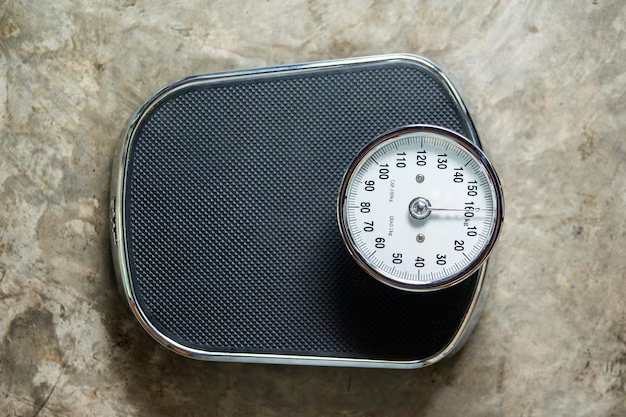Mastering the Art of Conversion: How to Effortlessly Transform Kilograms into Pounds
Have you ever stood in the grocery aisle, puzzled by how much 5 kilograms of apples would weigh in pounds? You're not alone. Understanding how to transfer kilograms to pounds is a practical skill that can simplify everything from cooking to travel preparations. In our globetrotting, multicultural world, knowing how to shift between metric and imperial measurements can be incredibly empowering. Stick around as we demystify this conversion journey, providing you with practical insights and tips to make these calculations second nature. 🌍🛒
Understanding the Basics: The Mathematics of Weight Conversion
Why Convert Kilograms to Pounds?
Before we dive into the nitty-gritty, let's explore why this conversion might be necessary. Globally, the metric system, which includes kilograms for weight, is the standard. However, countries like the United States still predominantly use the imperial system, which includes pounds. Whether you're an expat, a traveler, or someone interested in international cuisine, knowing these conversions is invaluable.
The Conversion Formula
The foundation of our conversion quest is the formula:
1 kilogram ≈ 2.20462 pounds
This means to convert kilograms to pounds, you multiply the number of kilograms by 2.20462. Let’s see how it unfolds in practice.
Examples to Clear the Cloud
- 5 kilograms: ( 5 imes 2.20462 = 11.0231 ) pounds
- 10 kilograms: ( 10 imes 2.20462 = 22.0462 ) pounds
- 20 kilograms: ( 20 imes 2.20462 = 44.0924 ) pounds
If you're curious about why the numbers add up like this, it stems from the definition of a pound, which has its historical roots in Roman and British measurements distinct from the kilogram.
Related Subtopics: A Broader Perspective
History of Metric and Imperial Systems
As you ponder these conversions, you might wonder how these systems evolved. The metric system originates from the late 18th century during the French Revolution, designed for consistency and scalability. In contrast, the imperial system, with its irregular intervals, has origins in various historical trades and measures in Britain.
Common Scenarios Requiring Conversion
- Cooking and Baking: Recipes often source from international cuisines, requiring the adaptation of weight for ingredients.
- Health and Fitness: For those tracking weight loss or muscle gain, understanding how much you weigh in both systems can be motivating.
- Shipping and Logistics: When engaged in international trade or moving abroad, knowing the weight of items in both kilograms and pounds can impact shipping costs.
Practical Tools and Tips for Conversion
Using a Calculator for Speed
A digital calculator or smartphone app can save time, avoiding manual errors. Simply input the formula, ensuring quick and reliable results every time.
Online Converters and Apps
Modern technology offers a plethora of apps and online tools designed for conversion. These resources are updated with the latest algorithms to provide accurate conversions instantaneously.
Mental Math Hacks
For quick, rough estimates, you can use the approximation that 1 kg ≈ 2.2 lbs. This is slightly off, but can be useful for mental calculations when precision isn't crucial.
Empowering Yourself: Beyond Simple Conversion
Creating Your Own Conversion Table
A simple table for frequently used weights can be a handy tool. Here’s an example of what a small conversion table might include:
| Kilograms | Pounds |
|---|---|
| 1 | 2.20462 |
| 5 | 11.023 |
| 10 | 22.046 |
| 15 | 33.069 |
| 20 | 44.092 |
Real-Life Application: Planning a Trip
Imagine planning a trip where your luggage allowance is listed in kilograms. By mastering this conversion, you can pack with confidence, avoiding unexpected fees.
Engaging in a Global Community
Knowing these conversions enhances your ability to communicate and participate in international settings, whether it's discussing a friend’s weight newsletter or engaging in topic threads on global forums.
Visually Distinct Summary Section
🔍 Key Takeaways for Easy Conversion:
- Remember the Magic Number: 1 kilogram ≈ 2.20462 pounds
- Conversion Tools: Use calculators, apps, and online converters for precision.
- Mental Math Shortcut: Approximate with 1 kg ≈ 2.2 lbs for quick estimates.
- Practical Use Cases: Useful in cooking, travel, health, and logistics.
Closing Insight
Mastering the conversion from kilograms to pounds is more than just a mathematical exercise; it's a gateway to new cultural experiences and practical life skills. By embracing both the logic and application of these conversions, you equip yourself to engage seamlessly in an interconnected world. Whether planning a dinner party with imported recipes or preparing for a move across borders, this knowledge enhances your ability to navigate a world where metric and imperial systems coexist. 🌐🍏
As you progress in your daily life, consider how such simple skills can bridge gaps and open doors, empowering you to connect across cultures and distances with confidence and ease.

Related Topics
- How Can I Transfer Data From One Laptop To Another
- How Can I Transfer Domain To Godaddy
- How Can I Transfer My Calls To Another Phone
- How Can I Transfer Pdf To Word
- How Can We Transfer Data From One Laptop To Another
- How Can You Transfer Data From One Phone To Another
- How Can You Transfer Emails From One Account To Another
- How Can You Transfer Vhs Tapes To Dvd
- How Do I Transfer a Prescription From Walgreens To Cvs
- How Do I Transfer Data From Ipad To Ipad
